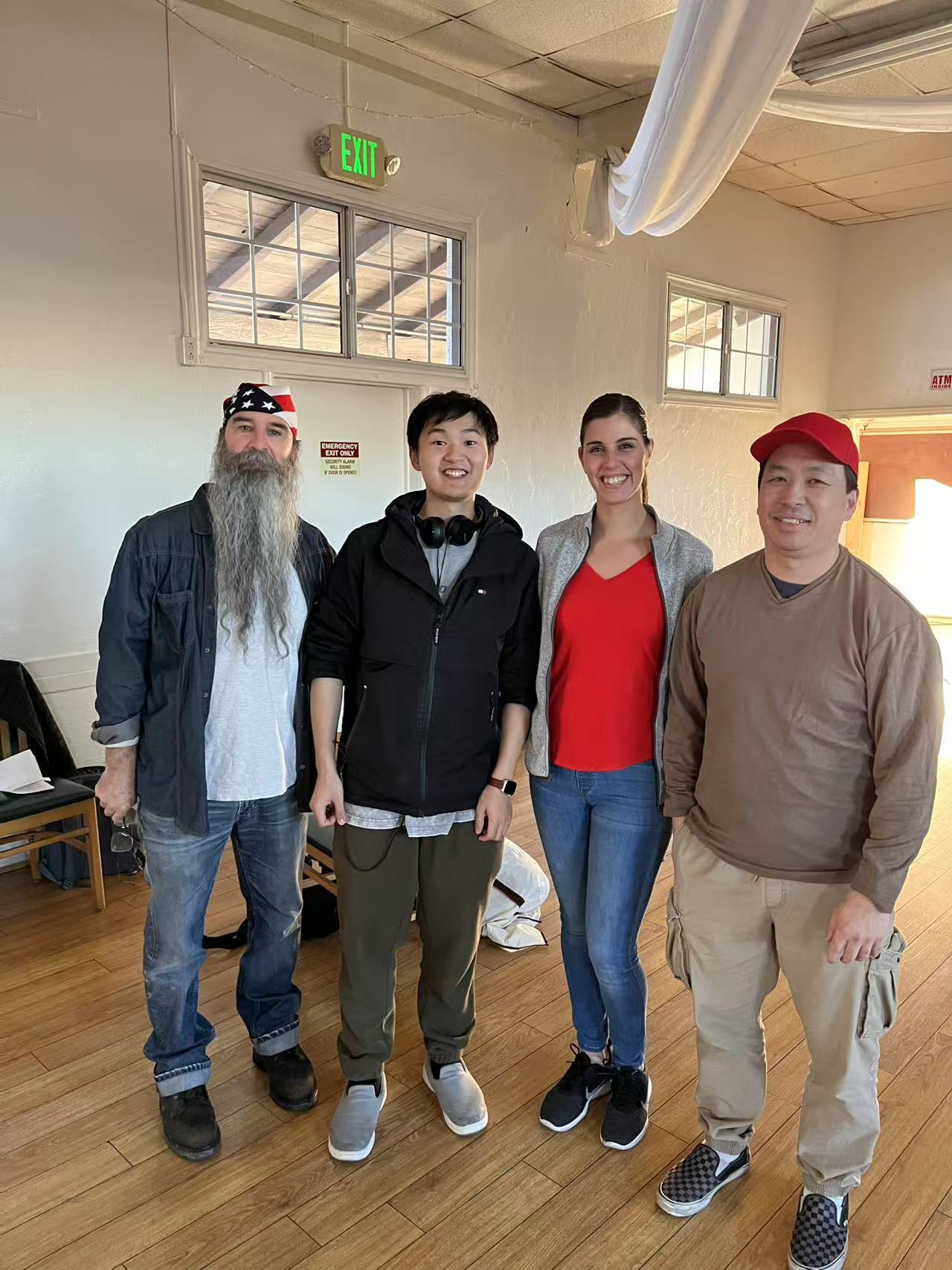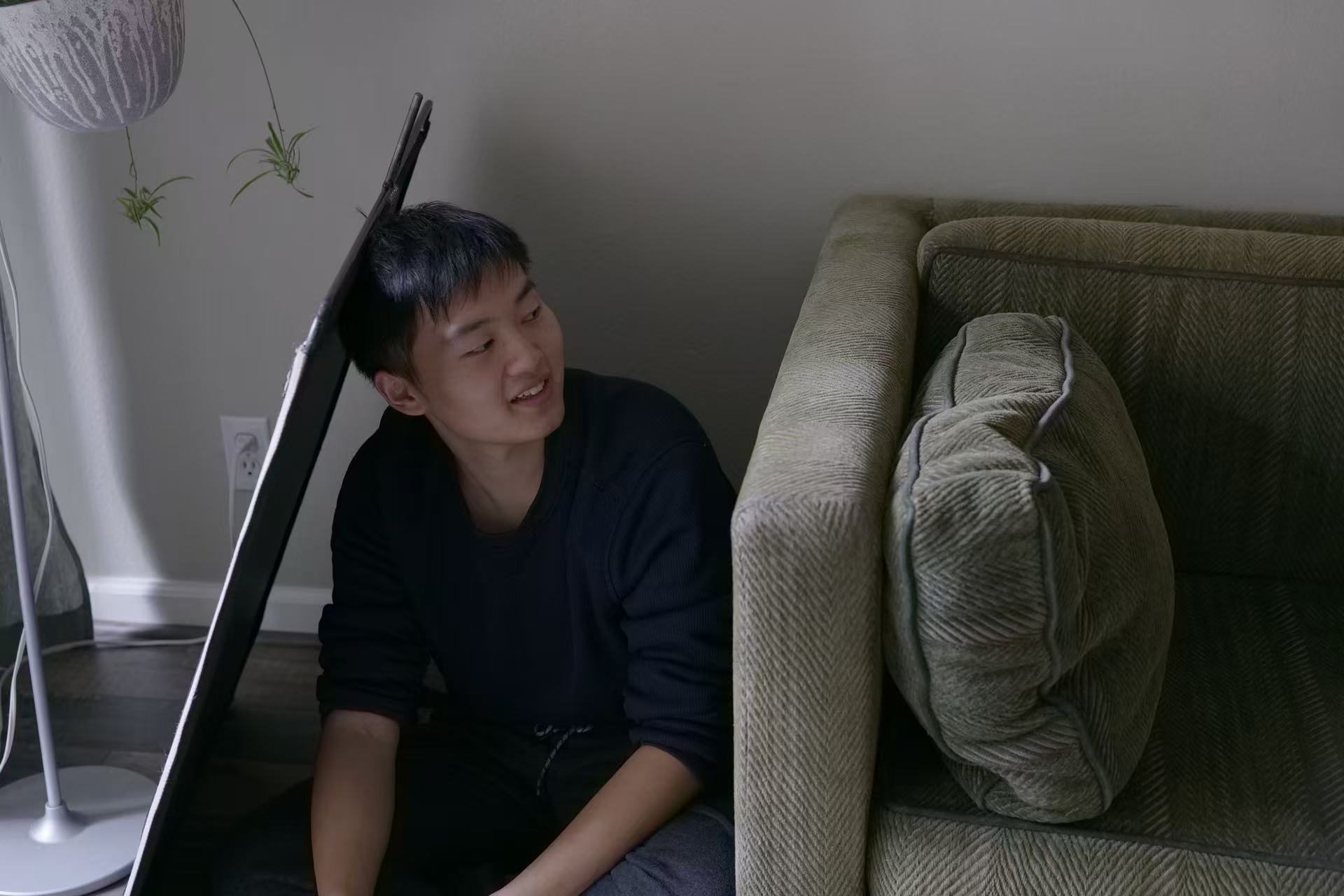Alright – so today we’ve got the honor of introducing you to Chen Zhao. We think you’ll enjoy our conversation, we’ve shared it below.
Chen, thanks for taking the time to share your stories with us today How has Covid changed your business model?
COVID completely changed the way the film industry works, shaking up long-standing traditions. Before COVID, almost no productions did auditions online—actors had to show up in person to read for directors, producers, and casting teams. Meetings were the same. If you were part of a production, you might have to fly across the country just for a quick discussion. Pretty much everything happened face-to-face, from pre-production planning to filming and post-production. That was just the way things were done.
But after COVID hit, everything shifted. Virtual auditions became the standard. Instead of walking into a casting office, actors now had to film self-tapes and send them in. In a lot of cases, casting decisions were made without anyone ever meeting in person. Production meetings moved online too—no more long flights or packed conference rooms. Everything was handled over Zoom or other video calls, making things way more efficient.
Even post-production changed completely. Things like color grading and sound mixing, which used to require everyone to be in the same room, started happening remotely. Directors could give notes on visuals from anywhere in the world, and entire teams worked together online, cutting down on travel time and costs.
Of course, not everyone adjusted easily. A lot of older industry professionals were so used to working in person that switching to a digital workflow felt unnatural. They preferred face-to-face interactions—whether it was directing actors on set or sitting side by side with an editor to fine-tune a film. For some, the shift to remote work made it harder to keep up.
For me, though, this new way of working opened up more opportunities. With virtual auditions, I wasn’t limited by location anymore—I could try out for projects in different cities or even internationally. Online meetings meant I could be part of creative discussions with teams I might never have had access to before. Remote collaboration also made it easier to connect with industry pros and work on projects that otherwise would’ve been out of reach.
COVID completely reshaped the film industry, and I chose to roll with it and find new opportunities in the process. Looking ahead, a mix of in-person and remote work will probably become the norm. And the people who can adapt to this digital shift will have a serious advantage in the industry’s future.

Chen, love having you share your insights with us. Before we ask you more questions, maybe you can take a moment to introduce yourself to our readers who might have missed our earlier conversations?
I recently graduated with an MFA in Film from ACCD and am now working as a freelancer in various film productions. I entered this industry with immense passion, fully embracing the challenges and opportunities that come with it.
My journey into filmmaking was far from conventional. I started off as a very typical, traditional Chinese student—excelling in math and pursuing a science-based education. In the beginning, I studied mathematics in college, following a logical and structured academic path. However, as time went on, I found myself increasingly disconnected from it. Instead of feeling inspired, I felt drained and even depressed. Something was missing.
It wasn’t until I decided to pivot to the arts that I truly felt alive. The moment I stepped into this world, it was as if a switch had been flipped—suddenly, everything made sense. My creativity, my passion, and my energy all aligned in a way that they never had before.
What sets me apart is my meticulous attention to detail and the level of care I put into my work. I take my responsibilities seriously, ensuring that every aspect of a production runs smoothly. This dedication has made me an integral part of every production team I’ve worked with. Beyond just fulfilling my role, I naturally look out for the well-being of the cast and crew, making sure that people feel supported and that the team functions efficiently. This ability to take care of both the production and the people involved has shaped me into a strong and reliable character on set.

Let’s talk about resilience next – do you have a story you can share with us?
During the pandemic, as a freelance film professional, I faced a lot of challenges. For anyone, the pandemic brought a lot of uncertainty, but as a foreigner, I also had to deal with visa and immigration issues. Travel restrictions and changes in work permits made many production projects unstable, especially for non-U.S. workers like myself. Many job opportunities were suddenly delayed, canceled, or shifted to hiring local talent, which made it harder for me to find stable work.
Visa issues added another layer of difficulty when trying to find work. At the start of the pandemic, I couldn’t travel across states or countries, and since many productions switched to remote work, I had to rely on virtual platforms to participate in projects. While this solved the spatial issues, it brought its own set of communication challenges. Remote work became more common, but I still felt there was a certain distance when it came to building connections with production teams and directors.
However, this also made me more determined to adapt to new ways of working. Despite the external uncertainties, I chose to actively respond by using online platforms to find new opportunities, rather than being defeated by the obstacles. I learned how to stay active through virtual auditions, remote work, and online project management, and had to deal with the tedious paperwork related to visas. Each project delay or schedule change taught me how to stay calm under pressure and find ways to solve problems.
I also found that these challenges fueled my resilience and creativity. After countless project cancellations, schedule delays, and visa approval issues, I began adjusting my career plans more flexibly and started viewing these difficulties as part of my personal growth. At the same time, I realized that even in tough situations, as long as I continue to improve my skills and adaptability, I can still find my place in this ever-changing film industry.

Learning and unlearning are both critical parts of growth – can you share a story of a time when you had to unlearn a lesson?
A lesson I had to unlearn was my blind trust in authority and my eagerness to connect with people who were more established or powerful in the industry, often hoping to gain opportunities through those connections. In the beginning, I believed that success in the film industry was largely dependent on knowing the right people—networking with influential figures, seeking validation from those above me, and trying to find shortcuts through connections. I admired those who were more experienced, and I thought that by aligning myself with them, I could advance more quickly.
However, over time, I realized that relying on external validation or connections alone wasn’t the key to long-term success. I saw that constantly seeking approval or trying to impress others could easily make me lose sight of my own creative voice. No matter how many people I networked with or how much I tried to position myself around the right circles, it all meant nothing if I didn’t have strong work to stand behind. What truly mattered was my own dedication to my craft—staying true to my creative vision and consistently putting in the effort to improve my skills and create meaningful work.
I learned that real opportunities come from what I bring to the table, not just who I know. Of course, connections matter in this industry, but they are only valuable when backed by solid work and authenticity. Once I shifted my focus from seeking approval to honing my own creative identity, I started feeling a stronger sense of purpose and fulfillment. Now, I understand that persistence, self-belief, and the willingness to create without waiting for permission are the real foundations of a sustainable career in film.
Contact Info:
- Website: https://vimeo.com/user184129501
- Linkedin: https://www.linkedin.com/in/czhao0602




